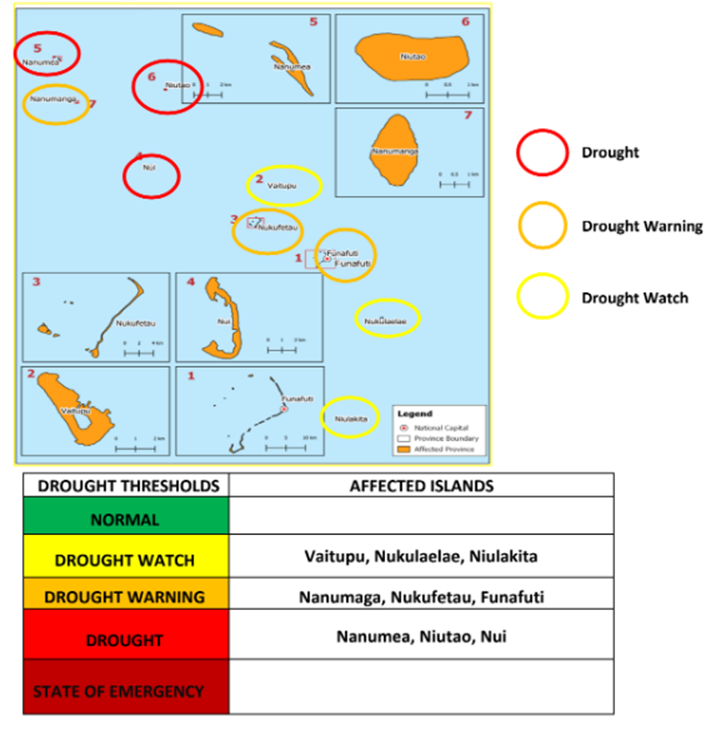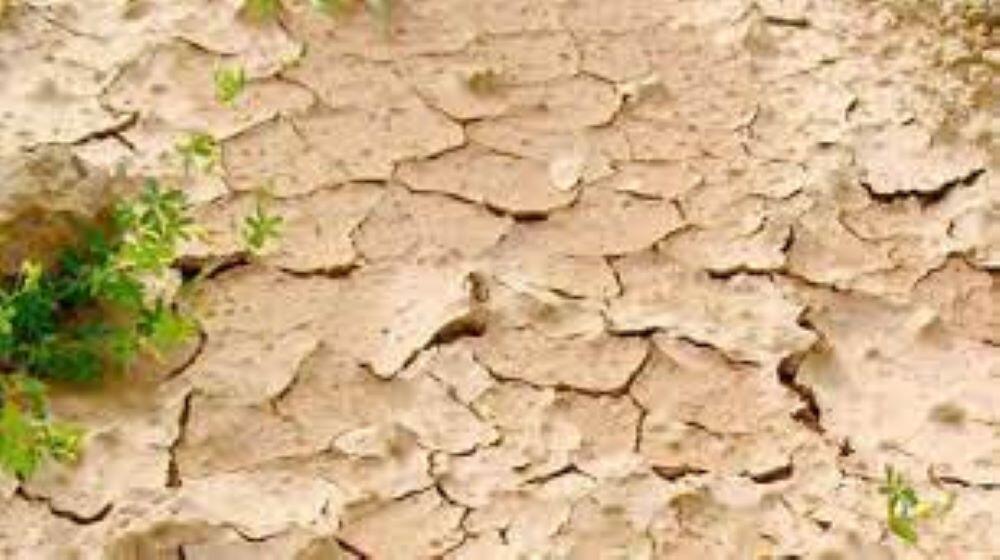Prolonged La Nina in the South Pacific region has impacted rainfall in Tuvalu, and the increasing water-shortage within the communities of Tuvalu is feared to have a disproportionately negative impact on women, girls and other vulnerable populations. UNFPA, the United Nations sexual and reproductive health agency, is supporting the government of Tuvalu on the drought response, including for mainstreaming integrated gender-based violence and sexual and reproductive health measures into the response, and calling for humanitarian/development partners’ concerted and scaled-up assistance in this regard.

Tuvalu’s islands of Nanumea, Niutao, Nui have been experiencing drought. Naumaga, Nukufetau and Funafuti islands are on warning alert, and three outer islands of Vaitupu, Nukulaelae, Niulatika are on a close watch as well. According to the Tuvaluan authorities, the rainfall outlook for August and September 2022 is predicted to be below the normal level. Drought, like any other humanitarian emergencies, impacts different people differently. For women and girls in Tuvalu – who make up 48% of the population – it may mean more at risk of violence, including physical, sexual and emotional abuse and diminished access to resources. Evidence shows that limited access to clean water will indeed increase intimate partner violence and other gender-based violence. The recent Multiple Indicator Cluster Survey 2019-2020 indicated that 38.1% of Tuvaluan women served (age 15 to 49) experienced physical violence, and 15.7% experienced sexual violence in their lifetime. In Tuvalu demographic health survey 2007, 47% of female respondents reported experience of violence.
In response to the drought in Tuvalu, UNFPA Pacific has been offering technical assistance in addressing gender-based violence in emergencies (GBViE) including on the integration of GBV-related assessment questions into assessment tools and development of key GBViE advocacy messages, as well as providing support to civil society and local organizations in reviewing the existing GBV referral pathways to adapt to the drought context. A systematic provision of quality service and information and strengthening national capacities for mental health and psychosocial support (MHPSS) to these women and girls subject to violence is also crucial.
In addition, in order to ensure that gender-based violence is not dealt as a separate issue but rather integrated as a cross-cutting concern for all sectors, UNFPA with its technical capacity and as the secretariat of the GBV sub-cluster at the regional level, stands ready to provide technical and coordination support to mainstreaming and integrating GBV to multi-sectoral responses to Tuvalu’s drought response, including for the oritentation to the frontline service providers about the prevention of sexual explotation and abuse (PSEA).
Further, with insufficient water, women and girls will face increasing challenges in continuing to meet their sexual and reproductive health, menstrual and hygiene related needs as well. Menstrual and hygiene supplies may become harder to acquire if the focus shifts more onto hardware water sanitation supplies within households and communities. To help menstruating people to manage their menstruation safely and with dignity, UNFPA is ready to deploy Dignity Kits, Menstrual Hygiene Management Kits, Women with Disability Dignity Kits, and interagency reproductive health supplies and commodities, in collaboration with UNICEF and other development partners.
UNFPA’s support to the drought response in Tuvalu is part of its accelerated initiative in the Pacific for advancing humanitarian preparedness and response in the region, with a special focus on GBV risk mitigation, GBViE coordination, and continuity of essential services during emergencies. Much of this area of UNFPA Pacific’s support has been made possible by the generous support of the United States Agency for International Development (USAID).
UNFPA appreciates the government of Tuvalu for its strong leadership and management oversight in ensuring that timely and effective measures are taken for the drought response, and stands ready to offer support to minimize risks, strengthen resilience, and ensure well-being and dignity of the vulnerable groups, especially women and girls.


